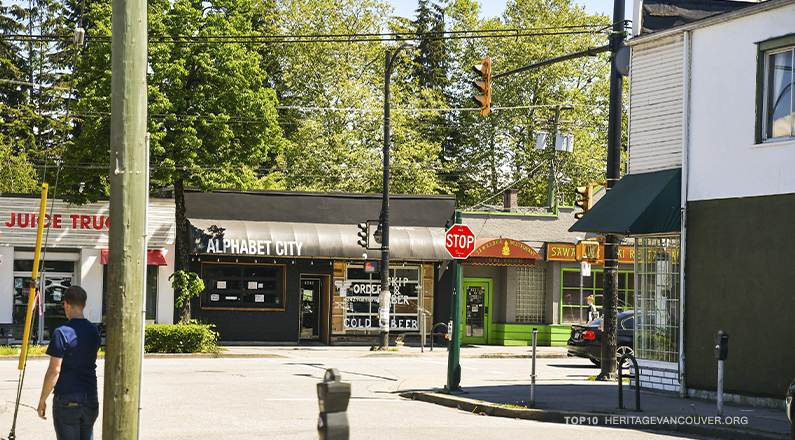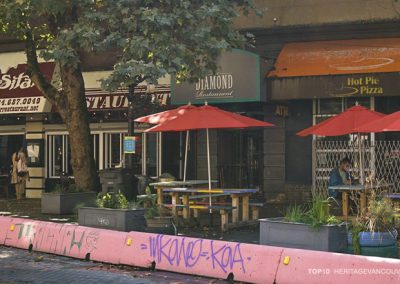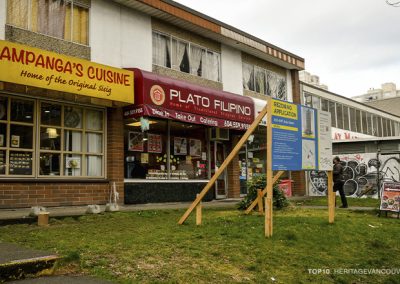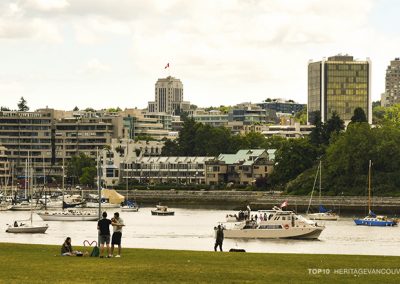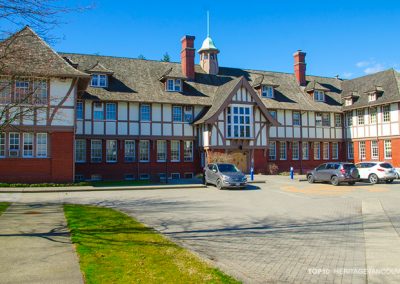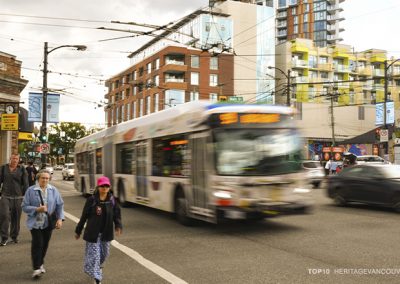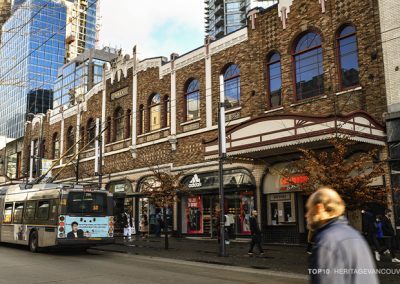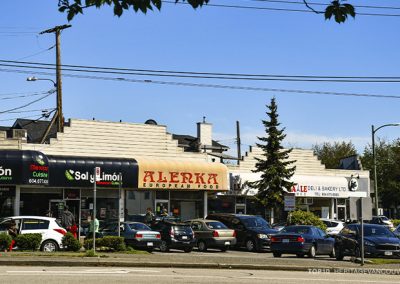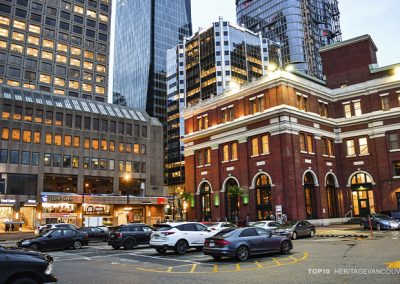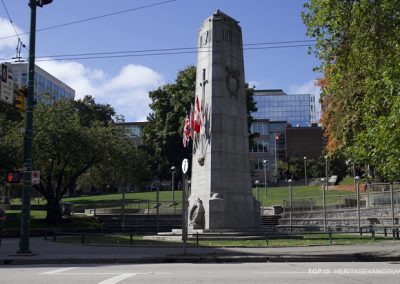Some have been there for many years, others have just started: neighbourhood or local businesses are much loved gathering spots, significant social spaces, places we rely on for our daily needs and a critical component of the local economy. As we have seen in the Top10 articles about 5163-5187 Joyce Street and Kingsway, these businesses are critical to communities as they contribute to a sense of belonging, community ties and living history.*
About
Often located in small and affordable buildings, neighbourhood businesses are at the heart of our city’s heritage. They contribute greatly to the unique cultural identities of their communities and perform often-overlooked social functions in our lives. Local, small businesses help us experience and learn about the people who, and cultures that make up our city. For example, many neighbourhood grocery stores have been an important way for immigrants to make their way in Vancouver and as such serve as reminders of our collective past.
Neighbourhood businesses are not only an integral part of the local economy, recirculating money back into the local economy, but also create relationships between business owners, staff, local suppliers and local residents. They contribute greatly to the creation of complete neighbourhoods, and many of them serve the specific needs of the specific demographics in different neighbourhoods, often at price points affordable to those who live in the area.
“Local businesses make the Chinatown neighbourhood special. It is not about the buildings, it is about the activities that take place in those buildings. You go to places in Chinatown to meet people, to catch up with friends and family. You go grocery shopping and run into people. When you lose these small businesses, it affects the feeling and livelihood of the neighbourhood.”
– Michael Tan, Vancouver Chinatown Legacy Stewardship Group
Why on the Top10?
The COVID-19 pandemic caused many small businesses to operate at much-reduced capacity or fully close. Some have reopened, others had to close the doors of their much-beloved work place for good. With many of us working from home during the lockdown, many businesses suffered from lower customer numbers on which they used to rely. Despite federal government support such as wage subsidy (CEWS), business loans (CEBA), Commercial Rent Assistance (CECRA), and the Canada Community Revitalization Fund, many local business owners could not be helped because of the structures of these types of funding. Locally, the City of Vancouver approved relaxations on the use of sidewalk and street patios, and waived all annual 2021 patio permit fees. However, not all local businesses benefit from these measures (such as clothing stores or your local barber).
Underlying problems will continue to threaten local businesses in Vancouver, if long-term issues are not going to be resolved. Prior to the COVID-19 pandemic, Vancouver neighbourhoods were already experiencing a rapid loss of non-chain store businesses with strong community ties. They were struggling for survival due to dramatically escalating rents and property taxes, unsuccessful lease negotiations, and arterial rezoning policies.**
A research report from the American National Trust for Historic Preservation (“Older, Smaller, Better”, 2014) showed that “blocks of older, smaller buildings are quietly contributing to robust local economies and distinctive livable communities.” In Vancouver too, the older and smaller buildings provide flexible and affordable space for many local business owners. While Vancouver is in dire need of housing, these neighbourhood stores are key to a vibrant community, and replacing them with mix-used, bigger and newer spaces that are unaffordable for many small business owners is not the solution, and takes away a vibrant component of each neighbourhood.
*Previously covered in our Top10 Watch List from 2018 and 2020, this article on neighbourhood businesses is a revised version of earlier articles.
**High taxes based on the unbuilt potential density of a site with a small business, or “highest and best use” is a particularly big issue. When streets are rezoned for more storeys, this places upward pressure on the costs for small businesses on those streets. Additionally, land assemblies for new buildings tend to replace older buildings that small businesses can afford and with storefront sizes viable for small business. It is typically these buildings that allow for local mom and pop businesses.
Photo by Ben Geisberg
We acknowledge the financial assistance of the Province of British Columbia
